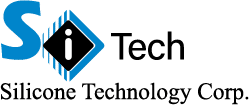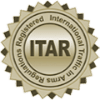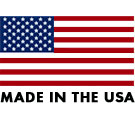
Understanding RoHS and Its Impact on the Silicone Industry
In the world of electronics and manufacturing, sustainability and environmental safety have become a necessity. Among the various standards and regulations ensuring these aspects, the Restriction of Hazardous Substances Directive, commonly known as RoHS, is the one of the most widely used. This directive, primarily enforced by the European Union, plays a crucial role in safeguarding the environment and human health. In this blog, we look into the essence of RoHS, its implications, and its significant impact on the silicone industry.
What is RoHS?
RoHS is a directive established by the European Union in 2002, with its enforcement beginning in 2006. It aims to restrict the use of specific hazardous materials found in electrical and electronic equipment (EEE). The substances currently restricted under RoHS include lead, mercury, cadmium, hexavalent chromium, polybrominated biphenyls (PBB), polybrominated diphenyl ethers (PBDE), and four types of phthalates. The directive is not static; it has undergone revisions to include more substances and broaden its scope.
The Significance of RoHS
The primary goal of RoHS is to minimize the environmental and health impact of these hazardous substances. These materials can be toxic, persist in the environment, and accumulate in living organisms. By restricting their use, RoHS aims to promote the recycling and reuse of electrical and electronic equipment, thereby reducing the amount of electronic waste contaminating the environment.
RoHS Compliance
Compliance with RoHS standards is not just a legal requirement but also a market necessity for manufacturers and suppliers of electrical and electronic equipment in the EU and many other regions that have adopted similar regulations. To comply, companies must ensure their products do not contain the restricted substances above the allowed levels. This involves adopting alternative materials, redesigning products, and implementing rigorous supply chain checks.
Impact on the Silicone Industry
The silicone industry, known for its production of high-quality, durable, and versatile materials, plays a pivotal role in the manufacturing of a wide range of products, including those in the electronics sector. Silicones are used in electronics for insulation, sealing, and thermal management, among other applications.
Material Reformulation: To adhere to RoHS regulations, silicone manufacturers have had to reassess and, in many cases, reformulate their products. This has led to the development of new silicone compounds that exclude restricted substances without compromising the material’s performance and durability.
Enhanced Quality Control: RoHS compliance has necessitated stricter quality control measures within the silicone industry. Suppliers and manufacturers now implement more rigorous testing and certification processes to ensure their materials meet the necessary standards. This has had the additional benefit of improving overall product quality and reliability.
Innovation and R&D: The restrictions imposed by RoHS have spurred innovation within the silicone industry. Companies invest in research and development to find safer, more sustainable materials and processes that comply with RoHS while maintaining or enhancing the properties that make silicones valuable to manufacturers.
Market Expansion: Compliance with RoHS has also opened up new markets for silicone manufacturers. By meeting these stringent environmental standards, companies can differentiate their products in the global market, appealing to consumers and industries increasingly prioritizing sustainability and safety.
Supply Chain Transparency: Finally, RoHS compliance has led to greater transparency in the silicone industry’s supply chain. Manufacturers now require detailed information about the composition and origin of their materials, fostering a more responsible and environmentally conscious supply chain.
RoHS has significantly influenced the silicone industry, driving changes in material formulation, quality control, and innovation. As the directive evolves, it will continue to challenge and inspire the industry to develop safer, more sustainable products. Ultimately, RoHS not only protects the environment and human health but also encourages the advancement and competitiveness of the silicone industry in the global market. Through compliance and innovation, the silicone industry is setting a standard for environmental responsibility in manufacturing.





